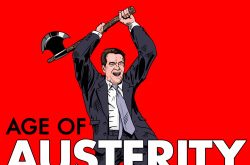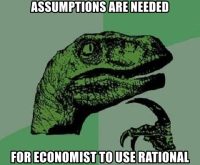from Richard Norgaard Changes in European perceptions of themselves, both with respect to nature and social organization, also coevolved around very important new ideas about individualism that coevolved with the rise in atomism in natural philosophy. Martin Luther’s call for reform of the Catholic Church stressed that individuals were responsible for their own salvation through their own reading of the Bible, the only true source for coming to know Christ and God. Luther’s call awakened...
Read More »Open thread March 30, 2019
European Court of Justice to decide if public institutions have a right to refuse cash
from Norbert Häring On 27 March, the highest administrative court in Germany, the Bundesverwaltungsgericht, has referred my case to the European Court of Justice (ECJ) in Luxembourg. I have insisted to pay my legally required contributions to public radio and TV with the legal tender, euro cash. This is not possible according to their regulations. The Bundesverwaltungsgericht has ruled that there is indeed a requirement for all public institutions to accept cash based on §14 of the...
Read More »The triumph of Trumpism
The recent chaos around One Nation (including Fraser Anning, reactions to the Christchurch atrocity and the Al Jazeera sting and the reactions to it, show how thoroughly Trumpism has conquered the Australian right. Most obviously, any doubts anyone might have had about Hanson and One Nation have been resolved. She and her party are racists (or in some cases, opportunities riding the racist bandwagon) trading in lunatic conspiracy theories and the rhetoric of the terrorist alt-right....
Read More »Why are we getting dumber and dumber?
from Lars Syll It probably shouldn’t worry us if some pocket of the population saw a decline in IQ as things like education and diet affect IQ and these factors can vary from one group or time to another. But according to this new study it doesn’t appear to be some small segment of the population whose IQ is going down. It appears to be the entire nation of Norway. When scientists from the Norway’s Ragnar Frisch Centre for Economic Research analyzed some 730,000 IQ tests given to...
Read More »The fallacy of Ricardian equivalence
from Asad Zaman Stiglitz: Ricardian equivalence is taught in every graduate school in the country. It is also sheer nonsense [see “Quotes Critical of Economics” for more.] This post explains why. In this post, we will create a simple model that demonstrates some fundamental truth of Modern Monetary Theory. This is a variant of “.Simple Model Explains Complex Keynesian Conceptss“, We will show the following phenomena A Market Economy naturally creates an equilibrium with high...
Read More »A push to make ecocide an international crime
Why do we wait until someone has passed away before we honour them? I believe we should overcome our embarrassment, and say it while they are with us. In this spirit, I want to tell you about the world-changing work of Polly Higgins. She is a barrister who has devoted her life to creating an international crime of ecocide. This means serious damage to, or destruction of, the natural world and the Earth’s systems. It would make the people who commission it – such as chief executives and...
Read More »The real public debt problem
from Lars Syll The claim that our public debt is excessive has been used as a major justification for austerity – cuts in spending. That massive debt, we are told, 1) must be repaid, 2) threatens our country with bankruptcy, and 3) is a burden on future generations. All these are wrong. Let me explain why … Britain’s national currency is managed by our central bank, the Bank of England, owned by the citizens of the United Kingdom (that is, our elected government). As a result, the British...
Read More »It is time to open up university departments of economics for alternative schools of thought.
from Peter Söderbaum Research and education in universities is subdivided into disciplines. There are departments of economics and departments of political science for example. Specialization and division of labour is thought of as being fruitful; Economics is about resource allocation at the micro and macro levels while political science is about democracy and governance. Something is sometimes gained through specialization but there are losses as well. This opens the door for...
Read More »The rational expectations putsch
from Lars Syll The tiny little problem that there is no hard empirical evidence that verifies rational expectations models doesn’t usually bother its protagonists too much. Rational expectations überpriest Thomas Sargent has defended the epistemological status of the rational expectations hypothesis arguing that since it “focuses on outcomes and does not pretend to have behavioral content,” it has proved to be “a powerful tool for making precise statements.” Precise, yes, but relevant and...
Read More » Heterodox
Heterodox



